Social Skills for Students with Autism
Me: Hi Bobby!
Bobby: Hi Mrs. Noodle.
Me: How are you today?
Bobby: I’m not touching my balls!
Me: Um? Good Job!?!
So, needless to say, this really happened.
 Functional Versus Academic Skills
Functional Versus Academic Skills
We work hard with our students on academics and learning… and we also work with them on building functional and vocational skills in hopes they will be able to get and keep a job someday.
Here is the truth of the matter.
Even if they are part of the less than 10% of students with low incidence disabilities that are gainfully employed, many of them will struggle to keep a job. And the two main reasons low-incidence disability students (like Autism) cannot keep a job is because they have poor hygiene or they have poor social skills.
Now there are lots of other reasons why students with severe and profound disabilities cannot keep jobs. These reasons go way beyond being smelly or weird. But there is some truth to the matter that these are the main reasons the kids we work with can’t keep a job.
Telling someone you’re not touching your balls is not a great workplace conversation. It’s only okay with a small group of people. So, in honor of Bobby, let’s talk about building social skills for students with Autism and other low incidence disabilities.
How to Build Social Skills
So how do you do to build better social skills in students with Autism and severe and profound disabilities?
How can you make them less socially awkward?
And how do you keep them from talking about their balls?
There are a couple of effective ways to build better social skills, and our students really need that piece in our curriculum and programming. Here are four very effective and easy strategies you can use in the classroom.
[tweetthis]4 Strategies to teaching vocational social skills to students with Autism.[/tweetthis]
Social Skills using Social Stories
Simply put, a social story is a visual and written guide that walks through a variety of social situations, interactions with others, behaviors or social skills. Social stories are very specific to students and address a skill set they’re personally working on. It helps them to identify the social cues associated with the story and also the targeted response or common response.
It is important that the social story point to a specific strategy or preferred behavior you are looking to elicit in a given social situation.
If you are interested in writing a social story, be sure to target the preferred behavior as well as describe the social situation where that behavior would be cued. Also throw in an affirmation sentence, or all the positive things that will happen if we do the right thing. Images can be of the student and in the social situation (that is best), but you can also use stock images, clip art, or any related image.
I have used social stories to target not trying to kiss adults, saying hi to girls we like, and staying on topic. I have found social stories are very effective and have helped to improve social skills. But presenting a social story for a student to read independently will not get you far- they are most effective if you use it in conjunction with the other strategies on this page, so read on!
Social Stories in the TPT Store!
Social Skills using Scripting
I have worked with a lot of students with echolalia, and when you repeat back what someone has said over and over again, it is not socially acceptable. Training someone to script may not solve the problem, but it helps. There is a great article here on teaching authentic speech to students with echolalia.
Scripting some standard responses are great for most generic social situations, like greeting someone (get your FREE Editable Speech Bubbles below). They help so much. Once the response cycle is routine, every pain staking second you took to train it will pay off. Just be sure to be consistent with the cue (like a phrase or a gesture) so a student can learn the response as well as the lead in for the response.
You can also script for vocational situations specifically with responses like:
Customer: Do you know where the bean sprouts are?
Student: I’m not sure, can you check with the front desk?
(And this would be a generic response for any do you know question.)
-OR-
Boss: Are you okay here?
Student: I am great, thanks for asking.
You may want to train the response script to:
- Ask for help.
- Ask for more work.
- Leave at the end of the day.
- Ask for a bathroom break.
- Get the schedule for the day or week.
Any scripting you can do may spare an employer from conversations about balls. Would you like a talking bubble template? Just click below and get one sent to your email… then adjust as needed- type in text on the three different page templates to suit your needs!
Social Skills using Role Playing
In the same way you’ll practice using social scripting, role playing goes more to nonverbal communication skill building. There is nothing worse than talking to someone and having them pick their nose, not make eye contact, or (yikes) pull a Bobby and touch their balls. With role playing, you work on those skills.
You may benefit from SLANT Posters in your room and refer to them often to reinforce eye contact, smiling, nodding and listening, but even without the poster you want to make sure you’re modeling good eye contact, practice smiling at people (in a socially appropriate way), listening to others when they talk and showing them you are listening by nodding your head (and that is not head-banging).
You would be amazed how doing those things can give someone the air of normalcy… if you don’t believe me, try not doing them with someone and see how quickly they look at you perplexed!
If you are interested in role playing with students with Autism or Low incidence disabilities, you will:
- Decide on a social situation that is naturally occurring in a student’s routine.
- Identify the ‘characters’ or people that are normally in this situation.
- Come up with a simple script or menu of phrases that are appropriate in the situation.
- Model for the students, Practice the situation, and Support the student as they role play.
- Now, generalize to the authentic situation. Ta-Da! Role Play Success!
Social Skills using Community Based Instruction
All of the strategies above are working towards success in the workplace and in a student’s adult life. So you will probably want to take all your hard work out in the world and see if it transfers.
Choose purposeful trips and be sure you are targeting the environments that will elicit the social situation you’ve been working on. Don’t have a budget, buses, or approval for community based instruction? Use your school community to practice- you can practice your social situations with peers using a peer buddy system, with school staff, and with parent volunteers. Think out of the box to set you students up with opportunities to show what they know.
Social Skills for Students with Autism
Even though social skills are something all students with low incidence disabilities need, students with Autism are more likely to have low social skills and also more likely than others in this category to actually hold a job. Giving them ample skills to be successful starts with making them more socially functional. So Script, Practice, and Generalize!

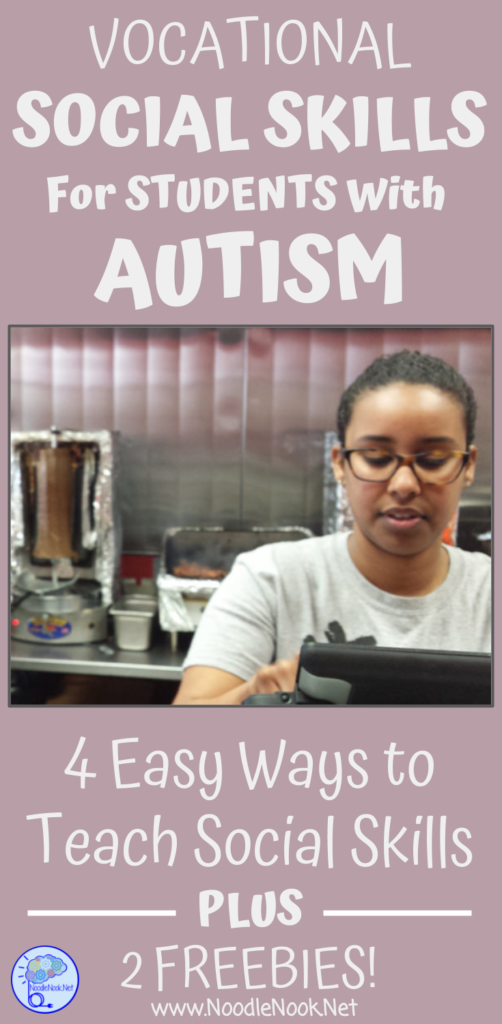
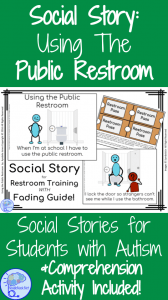
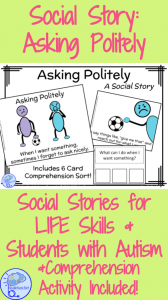
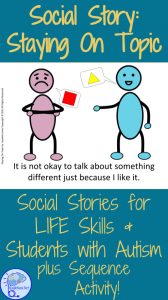
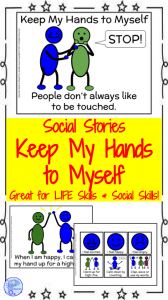
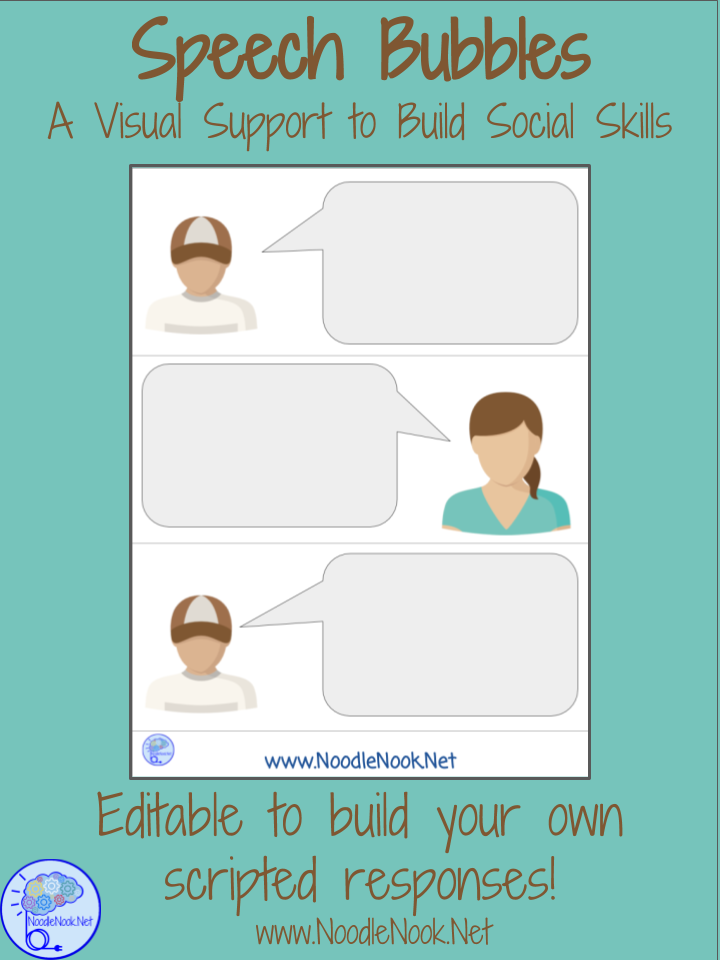

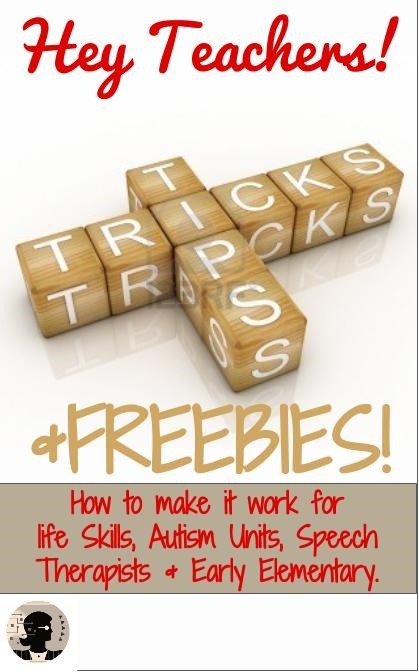
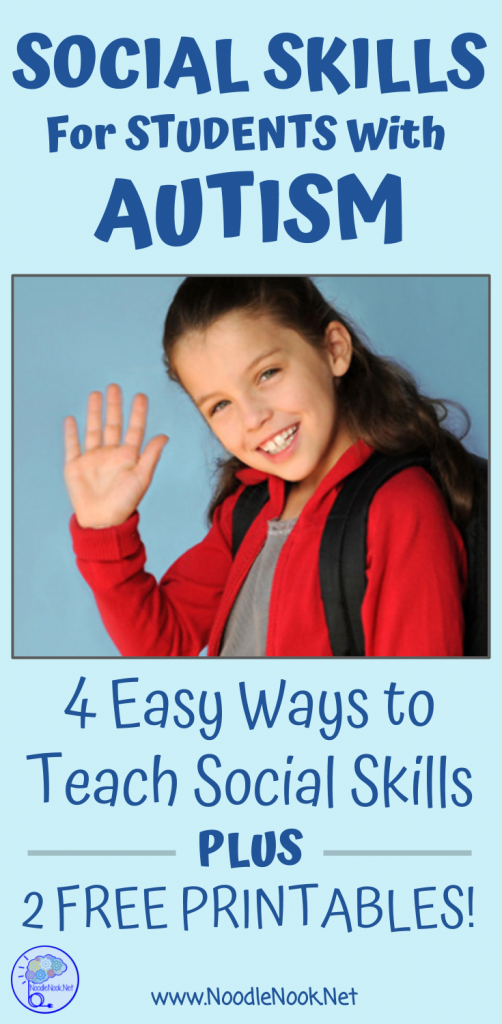
You said you have used social stories about not kissing adults…..I NEED THAT! I have looked and looked and cannot find a story like that. Where can I get one? I looked in your TPT store – and purchased another one, but the one specifically about not kissing adults, is the one I really need! TIA!
I can get that one made for you, but I need some info. Email me at ajones@noodlenook.net and I will get something going for you and push it to the store.
I’m guessing this is the one you purchased HERE. Is it a student who is kissing as attention seeking or because they like the affection? And what would you like them to do instead? Let me know.
Thanks!
Unfortunately, none of the traditional methods are working. I have tried role playing; youth really doesn’t respond or get it; I’ve tried scripts youth really is not interested in it; the only thing they respond to is what is of immediate interest to them and even it has to be presented in a certain way; so I am having a really hard time teaching youth social skills. Any advice. Thanks.
Great question! I know it can be frustrating when a child is not making progress in such a critical area like social skills. It is hard to make recommendations here without more knowledge of the student. With that said, social skills are hard to acquire without a reliable communication system. What supports are you providing the student to communicate in general? And what is the student working for (what is their tangible reward for task completion?)
Have you directly paired the high motivational/high interest objects with communication exchanges as a means of social interaction?
I am looking for a social story for my 17 yr old son. He loves books, and carries alot of books with him everywherehe goes. I recentlybought him a book shelf where he can keep them. I am looking for a social story about using the book shelf for his books but he is allwed tobri g two at a time with him when he is out. Can you help me pls? I need it with boardmaker. I woyld really appreciate your help, even ifits at a cost.
Hey Valere!
I am so sorry in the delayed response to your comment… I have been trying to work on writing some new books and social narratives recently, but time flies and production falls short. Can you please email me at ajones@noodlenook.net with some information essential to writing a social story and I can help you with the narrative. Are you looking for it to be saved as a boardmaker file or with boardmaker images?
Either way, thanks for reaching out. I will do my best to help, just email me to get things started.
Thanks!
Comments are closed.